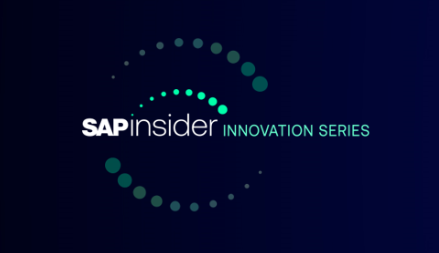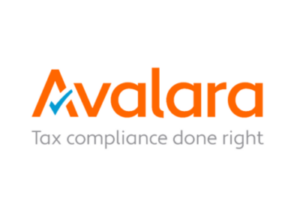SAP Accounting
Filter By
Browse By
- SAP Analytics and AI
- SAP Application Development and Integration
- All SAP Application Development and Integration
- SAP ABAP
- SAP ABAP Development Tools
- SAP ABAP Test Cockpit
- SAP API Management
- SAP BAPI
- SAP Basis
- SAP BRF
- SAP Business Application Studio
- SAP CMS
- SAP Design Studio
- SAP Development Tools
- SAP DevOps
- SAP EAI
- SAP EDI
- SAP Extension Suite
- SAP Fiori
- SAP Fiori Elements
- SAP Integration Suite
- SAP Low Code Application Development
- SAP Low Code Automation
- SAP Netweaver
- SAP Release Management
- SAP UI5
- SAP Web Application Server
- SAP Web IDE
- SAP Business Process Management
- SAP Center of Excellence
- SAP CIO
- SAP Customer Experience
- SAP Data and Data Management
- All SAP Data and Data Management
- SAP BW
- SAP BW/4HANA
- SAP Crystal Reports
- SAP Data Archiving
- SAP Data Center
- SAP Data Governance
- SAP Data Integration
- SAP Data Migration
- SAP Data Quality
- SAP Data Services
- SAP Data Strategy
- SAP Data Visualization
- SAP Data Warehouse Cloud
- SAP DMS
- SAP Document Control
- SAP EIM
- SAP ETL
- SAP ETL Tools
- SAP HANA
- SAP HANA Administration
- SAP HANA Deployment Infrastructure
- SAP HANA Studio
- SAP Master Data
- SAP Master Data Governance
- SAP MDM
- SAP Enterprise Architect
- SAP Enterprise Asset Management
- SAP ERP
- SAP Finance
- All SAP Finance
- SAP Accounting
- SAP AR AP
- SAP Asset Accounting
- SAP Billing Systems
- SAP BPC
- SAP BRIM
- SAP Cash Management
- SAP Central Finance
- SAP Controlling
- SAP COPA
- SAP Cost Center Accounting
- SAP Currency Risk
- SAP e-invoicing
- SAP FICO
- SAP Finance Automation
- SAP Advanced Financial Closing
- SAP Financial Consolidation
- SAP Financial Planning
- SAP FX Risk
- SAP General Ledger
- SAP Global Tax Management
- SAP Hyperion
- SAP Order to Cash
- SAP Payment Processing
- SAP Profitability Analysis
- SAP Rebate Management
- SAP S/4HANA Finance
- SAP SWIFT Compliance
- SAP Treasury Management
- SAP Universal Journal
- SAP Governance Risk and Compliance
- SAP Human Capital Management
- SAP Intelligent Technologies
- SAP Platform and Technology
- All SAP Platform and Technology
- SAP Business Technology Platform
- SAP Cloud
- SAP Cloud Connector
- SAP Cloud Integration Platform
- SAP Cloud Migration
- SAP Cloud Platform
- SAP Cloud Providers
- SAP Cloud Strategy
- SAP Digital Signature
- SAP Container Platform
- SAP HANA Enterprise Cloud
- SAP Digital Asset Management
- SAP Smart Forms
- SAP HEC
- SAP Digital Integration Hub
- SAP Hyperscalers
- SAP Infrastructure
- SAP Messaging
- SAP Quality and Testing
- SAP Security
- SAP Spend Management
- SAP Supply Chain Management
- All SAP Supply Chain Management
- SAP APO
- SAP Asset Management
- SAP Business Network
- SAP Digital Manufacturing Cloud
- SAP Digital Twin
- SAP EWM
- SAP IBP
- SAP Inventory Management
- SAP Label Printing
- SAP Logistics
- SAP Manufacturing
- SAP Manufacturing Automation
- SAP MES
- SAP MII
- SAP MM
- SAP MRO
- SAP MRP
- SAP Order Management
- SAP Plant Maintenance
- SAP PLM
- SAP Production Planning
- SAP S&OP
- SAP SD
- SAP SPM
- SAP Supply Chain Planning
- SAP Track and Trace
- SAP Transportation Management
- SAP System Administration
SAP Accounting: An overview and key considerations
What Is SAP Accounting?
SAP Accounting consists of two core modules that represent separate accounting books. SAP customers utilize SAP Financial Accounting (FI) for external reporting with financial statements and SAP Controlling (CO) for internal reporting purposes.
SAP Accounting enables organizations to deliver financial performance information necessary for effective decision-making by consolidating data from functional modules with powerful reporting tools. It is critical to ensure all aspects of an organization’s financials are integrated in a way that makes it easier for finance and accounting managers to access the information they need when they need it. SAP accounting modules are designed to make managing and reporting accounting data easier across organizations, teams, and roles, to support the generation of income statements, balance sheets, and cash flow statements.
For many organizations, SAP Accounting manages transactions across these core financial functions:
- Accounts payable/accounts receivable
- Bank accounting
- Cash journal
- Financial close
- Financial statements
- Fixed asset accounting
- General ledger
- Inventory
- Master data governance
- Multiple charts of accounts and parallel valuations
- Tax accounting.
Key Considerations for SAPinsiders
SAP Accounting: An overview and key considerations
What Is SAP Accounting?
SAP Accounting consists of two core modules that represent separate accounting books. SAP customers utilize SAP Financial Accounting (FI) for external reporting with financial statements and SAP Controlling (CO) for internal reporting purposes.
SAP Accounting enables organizations to deliver financial performance information necessary for effective decision-making by consolidating data from functional modules with powerful reporting tools. It is critical to ensure all aspects of an organization’s financials are integrated in a way that makes it easier for finance and accounting managers to access the information they need when they need it. SAP accounting modules are designed to make managing and reporting accounting data easier across organizations, teams, and roles, to support the generation of income statements, balance sheets, and cash flow statements.
For many organizations, SAP Accounting manages transactions across these core financial functions:
- Accounts payable/accounts receivable
- Bank accounting
- Cash journal
- Financial close
- Financial statements
- Fixed asset accounting
- General ledger
- Inventory
- Master data governance
- Multiple charts of accounts and parallel valuations
- Tax accounting.
Key Considerations for SAPinsiders
Prioritize industry-specific and business process-related compliance needs across accounting and finance requirements. SAP Accounting is an essential component of SAP ERP that provides organizations with global processes and information to account for the new standards of accounting, while maintaining flexibility to incorporate regulatory updates. SAP Accounting solutions can help organizations effectively meet global accounting and financial reporting standards to enforce compliance.
Consider opportunities to modernize accounting workstreams and provide operational visibility across virtual teams.The transition to a fully remote working environment has caused difficulties for accounting professionals, particularly as it relates to their dependence on spreadsheets, inability to access data, limited process documentation, and daily manually intensive tasks. Organizations can automate their workflows with SAP Accounting tools, freeing them to do more optimization and customization.
Leverage SAP Accounting products to enable accounting teams to do more with less. COVID-19 variants, virtual work, supply chain disruptions, inflation concerns, and the Great Resignation, represent some of the major challenges creating uncertainty for organizations across the current operating environment. With the uncertainty of this economy, accounting is required to give more up-to-date information to make smarter decisions in real time.
499 results
-

SAP S/4HANA Finance: What’s in a Name?
Reading time: 13 mins
Finance is currently at the forefront of technology innovations within SAP. By being the first line of business to re-architect the core finance and controlling capabilities to leverage the capabilities of SAP S/4HANA, finance professionals can increase their organizations’ efficiency through automation, thereby freeing up their bandwidth to leverage dynamic planning and modeling to provide...…
-

Strategies to Optimize Real Estate Expenditures and Lease Accounting Processes
February 19, 2021
Commercial real estate leased for business is one of the largest corporate expenses. It’s complex and time-consuming to manage. Plus, changes to lease accounting standards add new compliance burdens and stress to your financial reporting. This practical session will share insights and strategies to help you leverage market data, analytics and collaborative management applications that…
-

The State of Automation in the Financial Close Process
Reading time: 4 mins
A preliminary SAPinsider study highlights the urgent need for companies to automate financial close processes due to inefficiencies caused by disparate systems, with over half of financial teams planning further automation, while the current average closing time remains at eight days.
-
-

 Premium
Premium
Monitor Sensitive Fields with R/3’s Dual Control Functionality
Reading time: 10 mins
The standard SAP dual control principle imposes segregation of duties for changes to sensitive fields while allowing changes to be made by one person to non-sensitive fields. Key Concept Dual control functionality forces changes made to sensitive fields in customer and vendor master records always to be checked by another authorized employee. Even if two...…
-

 Premium
Premium
How to Delete Wrongly Entered Bank Statements
Reading time: 7 mins
SAP R/3 does not provide a standard transaction to delete bank statements from the Banks module in FI. This can lead to time-consuming problems when erroneous statements make their way into your system. While there is no transaction code, there is a report that allows you to delete bank statements. It has the added benefit...…
-

 Premium
Premium
Avoid PCA Reporting Problems When Using Different Companies for Sales and Delivery
Reading time: 46 mins
Inaccurate profit center accounting (PCA) reports can result from using profit centers incorrectly for triangular sales orders. The author demonstrates how to avoid this situation by pointing out some common mistakes and providing tips on setting up profit centers correctly. Recently I was working for a company that wanted to use profit center accounting (PCA)...…
-

 Premium
Premium
Use a Custom ABAP Report to Find “Labor Hours Confirmed on Production Orders” Data Entry Mistakes… Before Your Month-End Closing
Reading time: 9 mins
At some R/3 sites, the labor time spent on any given Manufacturing Order is recorded at a standard value, possibly as part of a backflushing transaction; at others, the hope is to have the operators record their actual time spent on each given Manufacturing Order, leaving wide open the possibility that operators may introduce data...…
-
-

 Premium
Premium
Hard-to-Get Inventory Analyses Become Easy Via the Material Ledger 4.6
Reading time: 8 mins
The latest version of the Material Ledger is a significant upgrade and includes two important inventory reporting options: compilation of actual bill of materials and automatic tracking of multilevel variances from standards. I have known about the Material Ledger since R/3 release 3.0B. But perhaps like a lot of field consultants, did not get too...…
-

 Premium
Premium
Understand RCA Concepts to More Easily Evaluate Your Ever-Expanding CO Module Functionality Options
Reading time: 18 mins
SAPexperts’FinancialsSince 1998, SAP has supported more than one costing philosophy in the R/3 CO module. This means that the CO user/designer has more and potentially confusing options when making scope decisions. The author focuses on one of those costing philosophies–Resource Consumption Accounting–and compares it to the better understood full absorption accounting so that you better...…
-

 Premium
Premium
Understand the Concepts of Event Detail Record Management
Reading time: 14 mins
Understand the meaning of an event detail record and the role it plays in the handling of high-volume billing scenarios by the mass billing or invoicing solution of SAP ERP 6.0. The solution is an extension to the SAP Contract Accounts Receivable and Payable component of SAP ERP. Key Concept An event detail record (EDR)...…
Become a Member
Unlimited access to thousands of resources for SAP-specific expertise that can only be found here.
Become a Partner
Access exclusive SAP insights, expert marketing strategies, and high-value services including research reports, webinars, and buyers' guides, all designed to boost your campaign ROI by up to 50% within the SAP ecosystem.
Upcoming Events
Related Vendors
Your request has been successfully sent


